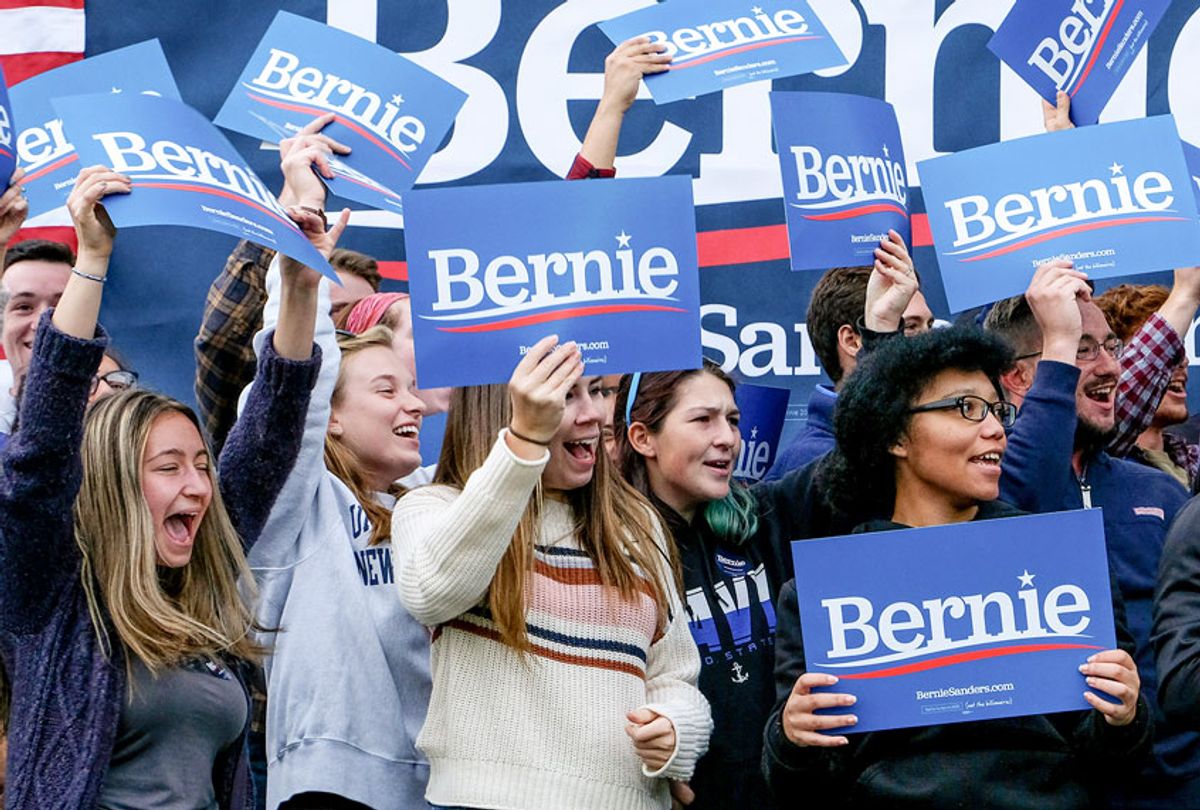Sen. Bernie Sanders', I-Vt., presidential campaign will request a partial recount of the Iowa caucuses after a partial recanvass showed him effectively tied with former South Bend Mayor Pete Buttigieg.
The campaign announced Tuesday that it will request a recount in about 12 precincts after updated results following a partial recanvass of more than 80 precincts showed Buttigieg leading with 563.207 state delegate equivalents (SDEs) — which are used to determine the winner and allocate national convention delegates — to Sanders' 563.127 SDEs. The recanvass shrank the margin from 2.774 SDEs to just 0.08. Sanders leads in the raw vote by more than 2,000 votes, though the campaign has touted his nearly 6,000 vote lead in the first round of voting.
"While it is clear that Sen. Sanders won the popular vote in Iowa by 6,000 votes, the recanvass process reduced the State Delegate Equivalent deficit by 97%," senior adviser Jeff Weaver said in a statement. "We now believe a recount will give Sen. Sanders enough State Delegate Equivalents to put him over the top by that metric, as well."
Buttigieg currently leads Sanders with 14 national convention delegates to 12, according to the Iowa Democratic Party's (IDP) results. A recount could flip in Sanders' favor. The Associated Press is still unable to declare a winner in the race, because the party failed to address numerous errors that were flagged by multiple media outlets in the results. The AP noted that there were issues with the data reported by individual precincts, as well as mathematical errors in the process used to allocate SDEs.
Buttigieg requested a recanvass of 114 precincts while Sanders requested a recanvass of 28 precincts out of more than 1,700 statewide. The party recanvassed 81 precincts, but it did not address Buttigieg's challenge that SDEs allocated in the new satellite caucuses were "miscalculated and misreported." The party said the "request was outside of the scope of a recanvass."
The caucus results were initially delayed after a brand new reporting app malfunctioned and the backup phone hotline was overwhelmed. The IDP later released results riddled with errors. The party initially said it could only correct the mathematical errors in a recount but later agreed to address some of the errors after a vote by its central committee. The party corrected the results from 26 precincts that had mathematical errors and from three precincts that had reporting errors, according to the AP. Journalists have flagged several errors that the party still has not addressed.
"Look, it would have obviously been much better for the people of Iowa and people of this country to learn the results the night of the Iowa caucuses," Weaver told Politico. "But we have pursued the audit remedies that were available to us and we believe it will come in our direction."
It iss unclear if Buttigieg will seek a recount in any precincts.
"Yet again these results confirm that Pete won the Iowa caucuses and remains the delegate leader in the Democratic primary," Buttigieg spokesperson Ben Halle told the outlet.
The campaigns have 24 hours to formally request a recount and must show "credible evidence that indicates the recount could change the national delegate allocation," according to the IDP.
Though a recount could flip the final delegate count, it will have little effect on the presidential horse race. The state, which awards 41 national delegates in total, accounts for just 1% of delegates. Roughly a third of the 3,979 total delegates will be up for grabs on March 3, when more than a dozen states and territories cast their votes on Super Tuesday.
After winning the popular vote in Iowa and eking out a victory in New Hampshire, Sanders has seen a surge of support heading into the Nevada caucus, South Carolina primary and Super Tuesday.
Sanders now leads former Vice President Joe Biden and former New York City Mayor Mike Bloomberg by more than 10 points in the RealClearPolitics national poll average. Sanders also leads by double-digits in Nevada, according to RCP data, and surged to a first-place tie with Biden in South Carolina after trailing throughout the entire cycle, according to a Change Research survey. Sanders also leads in California, the biggest contest on Super Tuesday, while surging to a virtual tie with Biden in Texas and North Carolina.
The rise in support is not limited to the Democratic electorate. A new Emerson poll showed Sanders as the only Democratic candidates leading President Donald Trump in a head-to-head matchup, while Biden, Bloomberg and Buttigieg all trail the Republican.
"We are taking on billionaires and candidates funded by billionaires," Sanders said after his win in New Hampshire, "but we are going to win because we have the agenda that speaks to working people throughout this country."



Shares